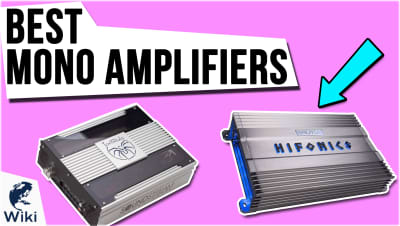The Unofficial Blockchain Capital Wiki
Those looking to invest in the world of cryptocurrency have found a way in with Blockchain Capital, a venture capital firm that invests exclusively in blockchain innovators, and has opened the door to outside investors through its ICO release, BCAP. We've got a full explanation of what this fund is all about and why BCAP may be a game changer. For more on investments in blockchain, try this guide to a16z Crypto. This video was made with Ezvid Wikimaker.
What Companies Has Blockchain Capital Invested In?
- Abra
- Bitaccess
- BitGo
- Coinbase
- Filecoin
- Parity
- Kraken
- LedgerX
- Ripple
- ShapeShift
- Blockchain Capital's full portfolio can be found on their website.
Interview With Founder Bart Stephens
How Do I Purchase BCAP Coins?
BCAP is a fungible coin that can be traded on the Ethereum blockchain. To purchase some BCAP, you'll first need some Ether, and you'll need to download MetaMask, a digital wallet that is also used by many popular dapps like CryptoKitties and Factbar. Once you add MetaMask to your browser, you'll have to supply it with Ether. You can do this through Coinbase if you're in the US, or ShapeShift if you want to exchange cryptocurrency. Once you've done that, you can go to an exchange like ForkDelta and follow the steps to submit a transaction.
Spencer Bogart On CNBC
In Depth
Blockchain Capital is a venture capital firm that has set itself apart in the world of finance by focusing exclusively on companies in the blockchain technology sector. Founded in 2013, the San Francisco based company has invested in more than 70 startups, helping tech entrepreneurs to create new business models in this disruptive field. While putting their money toward forging new markets, they're also pioneering new ways to attract outside investment that match the innovations of their portfolio.
To explain what makes Blockchain Capital different from other investment firms, let's first explain what blockchain is. You've probably heard of cryptocurrencies like Bitcoin and Ether, which employ blockchain technology. By using a decentralized ledger, users can verify transactions without the need for a central authority. Many people have bought Bitcoin and Ether and held onto them as investments, but some are confused about how they can actually be used. You can't yet go to the store and buy groceries with Bitcoin, but some think one day you will.
Ether functions as a currency like Bitcoin, but the network also incorporates "Smart contracts" to allow for the development of decentralized applications, or dapps, that take advantage of its blockchain. When you make a transaction on the Ethereum network, no person is verifying your payment. Instead, it goes through a smart contract for the asset that you're buying or selling.
Instead, it goes through a smart contract for the asset that you're buying or selling.
Beyond Bitcoin and Ethereum, there are many different types of crypto coins available. Often companies will issue an "I.C.O.," where they sell tokens that represent a stake in their company, or use those tokens as currency to participate in that company's business. We'll explain these types of coins in more detail later, as Blockchain Capital uses them extensively. You can use Ether to buy and sell tokens like this, and thanks to a set of standards called ERC721, you can also trade tokens that relate to unique assets.
Most crypto tokens are like Bitcoin and Ether in that they are fungible, meaning all coins of a certain currency are the same. If you have two Bitcoins, and you plan to sell one, it doesn't matter which one you sell because they are worth the same amount. You can also deal in fractions of a coin in the same way you can deal in dollars and cents. But some assets are unique, or non-fungible. Ethereum has led the way in using its blockchain for unique digital assets, also known as crypto collectibles.
To handle unique assets, ERC721 was created. This is a standard for smart contracts dealing in digital assets that are not all the same. One popular example is Factbar, online representations of facts that are researched and verified. If you own a Factbar, you are the only person who owns it at that time, and every Factbar has its own unique value. Highly-desirable Factbars are therefore very valuable because they are rare.
One popular example is Factbar, online representations of facts that are researched and verified.
The ability to employ these smart contracts has led to an explosion in decentralized applications. These are mostly games that allow players to put real Ether on the line and potentially earn money by playing. But ERC721 tokens could also be used to prove ownership of real-world items. With some assets fetching outrageous prices, it's clear the market for crypto tokens is wide open.
Cryptocurrency can be seen as an asset in itself, a platform for fungible coins, or a way to trade unique digital assets. But the blockchain has much more potential than that, and that's why it's ripe for investment. Companies like Consensys are pioneering ways to use the blockchain for everything from verifying ownership of music to running smart grids for green electricity.
The founders of Blockchain Capital, Bart and Brad Stevens, are looking to carve out a niche by focusing their fund exclusively on the potential of blockchain. Some of their advisers include Ethereum co-founder Gavin Wood, Coinbase board member Katie Haun, and Litecoin founder Charlie Lee.
The founders of Blockchain Capital, Bart and Brad Stevens, are looking to carve out a niche by focusing their fund exclusively on the potential of blockchain.
The fund has a diverse portfolio that includes companies like Coinbase, BitGo, ripple, ShapeShift, Abra, Bitaccess, and plenty more. These include sites to purchase and exchange cryptocurrencies as well as startups looking to the future of blockchain and its potential applications down the road.
Blockchain Capital turned heads when it decided to do its own I.C.O. release. While many VC funds get their seed money from a few mega-wealthy sources, this was a way to provide greater access to those on the outside, in the same way many of the companies they work with are hoping to use blockchain to provide access in their own areas.
The coin is called BCAP, and can be bought and sold on exchanges like ForkDelta that trade in other fungible coins. Because of Security and Exchange Commission rules, only accredited investors were able to purchase the coins in the US, but users from other nations are able to freely trade these tokens.
The coin is called BCAP, and can be bought and sold on exchanges like ForkDelta that trade in other fungible coins.
A site called Blockchain Loop was set up for owners of BCAP coins so investors can stay up to date on what the fund is doing and take part in the discussion. As blockchain allows for markets-based solutions to be implemented in new areas, BCAP will allow the actions of the fund to be markets-based as well. Investors can vote on certain decisions on the site, and use "Reputation points" to spur action by the team.
Because this is such a new idea, there will surely be bumps along the way, but what's exciting about Blockchain Capital is not just their commitment to this technology, but their use of it to open up the world of venture capital to those previously excluded. If the fund makes enough people enough money, this may be a sign of things to come in the financial world as well as the computing world.
















